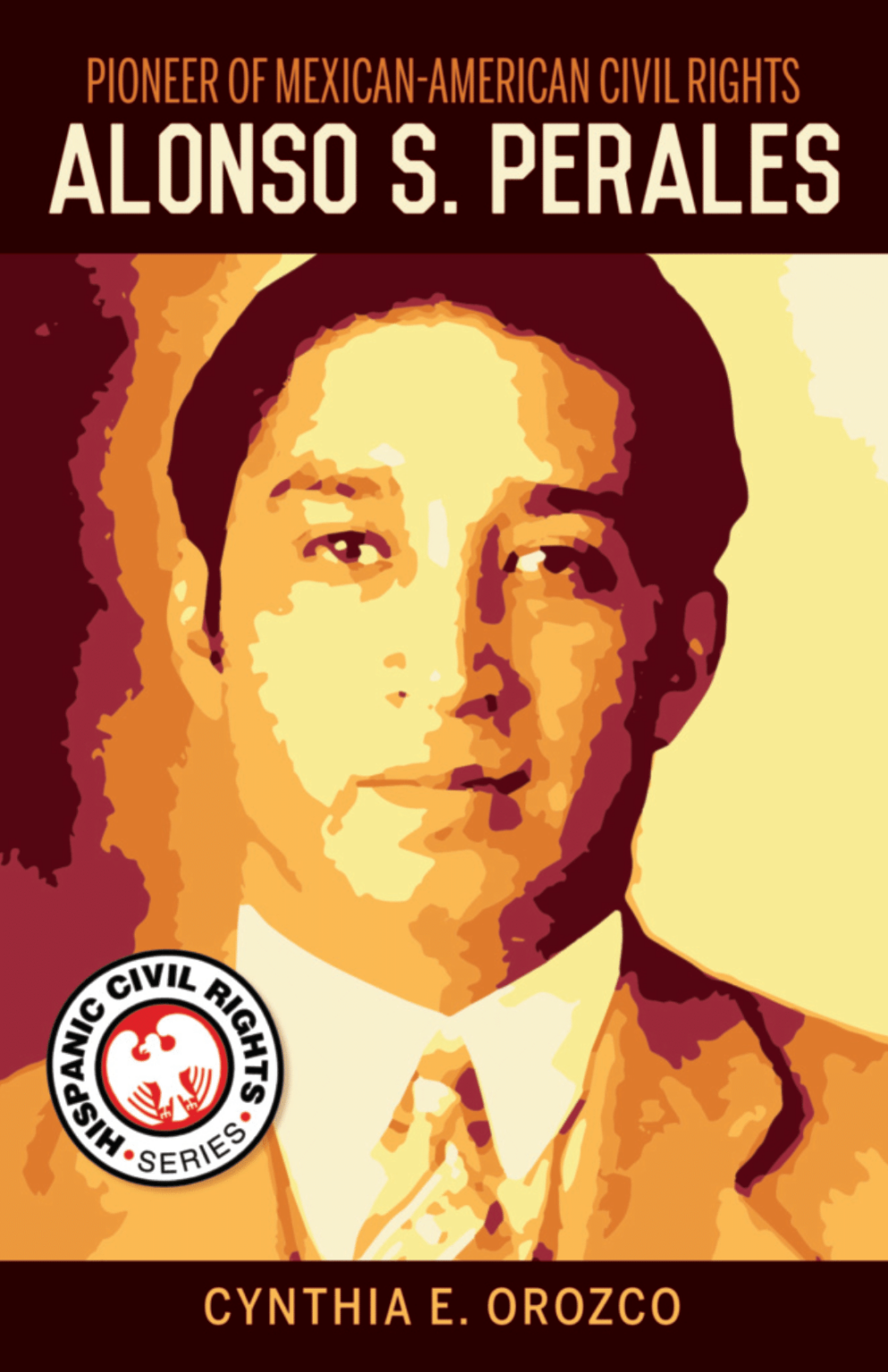Review: Cynthia E. Orozco. Pioneer Of Mexican-American Civil Rights Alonso S. Perales. Houston: Arte Publico, 2022. ISBN: 978-1-55885-896-1
Michael Sedano
One historian calls Alonso S. Perales, “the most important Mexican-American leader of the 20th century”, and here we sit near the end of the first quarter of the 21st Century asking, “Who?”
Perales writes about his activism from 1919 to the late 1930s in his first book, the 2-volume, En Defensa de Mi Raza.
Now, this pioneer of Mexican-American civil rights is subject of a recent publication from Arte Publico’s Hispanic Civil Rights series, Cynthia E. Orozco’s Pioneer Of Mexican-American Civil Rights Alonso S. Perales (link).
Perales was no Chicano, but he was a man of his time. He saw himself as a Mexican-American, a lexical advancement out a morass of racist perceptions. In his vocabulary, that hyphen held two oxymoronic forces at bay while generating a coherent sense of collectivism, not assimilationism, out of the mix.
Not that Orozco takes a position on the battle of the name, she uses any number of terms. In her introduction, her ethnic vocabulary names "Latinos", "Mexicans living within the United States", "Mexican American", "Mexican-American". Moreover, Perales is the pundit—Orozco prefers “public intellectual”—who “in effect defined ‘Mexican Americanism,’ an emerging identity and political philosophy, spreading and living this ideology for over four decades.”
Specialists in Chicano history may have some difficulty reading past the noise of contemporary attitudes and limited knowledge. “LULAC”, for example, sounds alarms in some progressive ears. Orozco’s meticulously researched 370-page biography, connects LULAC with the history of raza liberation organizing. You don’t have to like LULAC to understand its role in Chicano history, and Orozco is balanced in exploring some of the pedo.
Students of C/S will find the volume’s 165 pages of notes and bibliography immensely useful. First, the scale of research models what professional historiography demands. Second, the thoroughness of the resources reflects dogged field research to track down obscure manuscripts and self-published works. Beyond this, raza needs to know our heroes aren’t just here today and gone tomorrow.
Raza activism dates back a long, long time, gente. It’s important that historians do the observation conversation reading--the three elements of research-- and get out the word. Limited media distribution and access are important reasons for Perales’ anonymity. Imagine all the stories that need telling.
The information explosion hasn’t reached its blast radius yet, and thanks to Arte Publico’s Hispanic Civil Rights series, undercover heroes are getting unmasked as increasing numbers of ethnic studies Ph.D. find dissertation topics.
Eyewitness to history, Jesus Treviño, interviews historian Cynthia E. Orozco in a recent platica at Latinopia.com . Latinopia provides the same kind of value on a global scale as Orozco’s massive bibliography on one man. Sadly, Latinopia's happens to be banned by the powers-that-muck-up at Facebook. La Bloga used to be banned, too.


No comments:
Post a Comment